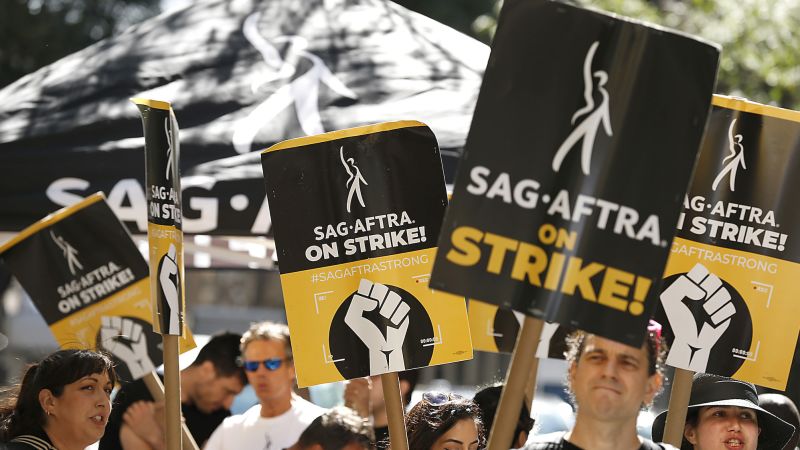SAG-AFTRA’s National Board is unanimously seeking permission from union members to strike against a number of video game makers ahead of negotiations resuming later this month.
The union’s initial contract with major video game companies, the Interactive Media Agreement, was extended past its initial expiration date last fall as SAG-AFTRA “negotiated with the companies for critical terms (members) need,” the union said Friday in a news release. “Unfortunately, throughout the negotiations, the companies have failed to address those needs.”
“Once again we are facing employer greed and disrespect. Once again artificial intelligence is putting our members in jeopardy of reducing their opportunity to work. And once again, SAG-AFTRA is standing up to tyranny on behalf of its members,” Fran Drescher, the union’s president, said in a statement. “The disease of greed is spreading like wildfire ready to burn workers out of their livelihoods and humans out of their usefulness. We at SAG-AFTRA say NO! Not on our watch!”
While a strike authorization does not launch a strike, it can be a useful tool at the bargaining table because it gives the union the ability to declare a strike if negotiations break down. Eligible SAG-AFTRA members will be able to vote on authorizing a strike until September 25 at 5 p.m. PT, the evening before discussions resume.
SAG-AFTRA is seeking an 11% retroactive wage increase for its video game performers, as well as a 4% increase in the contract’s second and third years in order to offset inflation. It is an identical request to the one it made to the Alliance of Motion Picture and Television Producers as part of the union’s ongoing strike against film and television companies.
A SAG-AFTRA negotiator who asked not to be named told CNN the video game companies are offering “a nominal dollar increase but a real dollar pay cut.” They added under the current proposed terms and due to inflation, “our members will be making less in real dollars in 2025 than they did in 2020.”
“We all want a fair contract that reflects the important contributions of SAG-AFTRA-represented performers in an industry that delivers world-class entertainment to billions of players around the world,” Audrey Cooling, a spokesperson for the video game companies, told CNN in a statement. “We are negotiating in good faith and hope to reach a mutually beneficial deal as soon as possible.”
Protections against AI are also central to the negotiations, especially with regard to performance capture technology, where an actor’s movements and facial expressions are collected and used to make animated video game characters more lifelike.
“The voice and performance capture artists who bring video game characters to life deserve a contract that reflects the value they bring to the multibillion-dollar gaming industry,” SAG-AFTRA’s National Executive Director and Chief Negotiator Duncan Crabtree-Ireland said in a statement. “Voice and performance capture AI are already among the most advanced uses of AI: the threat is here and it is real. Without contractual protections, the employers are asking performers to unknowingly participate in the extinction of their artistry and livelihoods.”
The companies involved in the negotiations include Activision, Epic Games and WB Games, which have video game portfolios including immensely popular series such as “Star Wars: Battlefront,” “Call of Duty” and “Mortal Kombat.”
WB Games is owned by CNN’s parent company, Warner Bros. Discovery.
“The interactive nature of games are built upon the use of such technologies,” a source familiar with the companies’ negotiations told CNN. “Changing that now would fundamentally change how games are made.” The source added resolutions or tentative agreements have been reached on nine of the union’s 16 proposals.
The SAG-AFTRA negotiator told CNN while there has been progress across a number of proposals, the union’s tentpole proposals on AI and wages have not yet been properly addressed.
“Informed consent is the linchpin here. If you want to make a deal with someone to make multiple characters, we want people to agree or not agree to that and be compensated for it. We’re not trying to upend the way video games are made,” the negotiator said.
Read the full article here










